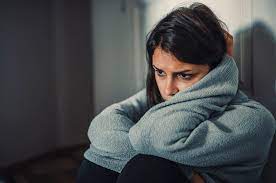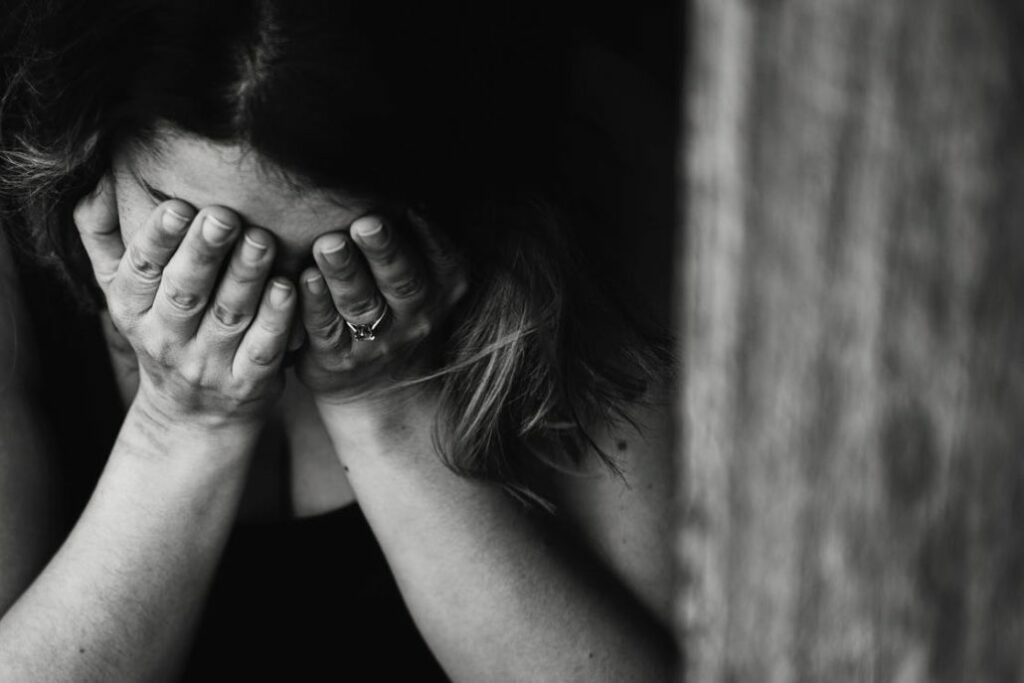Major Depressive Disorder (MDD) often lurks silently, affecting millions globally, characterized by persistent sadness, loss of interest, and a plethora of other symptoms. However, the landscape of treatment is rich and varied, offering hope and pathways to recovery. This blog delves into the most effective major depressive disorder therapies, providing insights into traditional and innovative approaches that empower individuals to reclaim their happiness and functionality.
Contents
- 1 When To Consider Major Depressive Disorder Therapies?
- 2 What Are The Best Major Depressive Disorder Therapies?
- 2.1 Cognitive Behavioral Therapy (CBT)
- 2.2 Interpersonal Therapy (IPT)
- 2.3 Pharmacotherapy
- 2.4 Psychoanalysis and Psychodynamic Therapy
- 2.5 Electroconvulsive Therapy (ECT)
- 2.6 Transcranial Magnetic Stimulation (TMS)
- 2.7 Mindfulness-Based Cognitive Therapy (MBCT)
- 2.8 Behavioral Activation
- 2.9 Support Groups and Community Therapy
- 2.10 Lifestyle Changes
- 3 What Are The Benefits Of MDD Therapies?
- 4 Conclusion
When To Consider Major Depressive Disorder Therapies?
 Deciding when to consider therapies for Major Depressive Disorder (MDD) is crucial for effective management and recovery. Here are some key indicators that it might be time to seek therapeutic interventions:
Deciding when to consider therapies for Major Depressive Disorder (MDD) is crucial for effective management and recovery. Here are some key indicators that it might be time to seek therapeutic interventions:
- Persistent Sadness or Low Mood
If feelings of sadness or a low mood persist most of the day, nearly every day, for more than two weeks, it may indicate MDD. This is especially significant if these feelings don’t seem to lift even in pleasant circumstances.
- Loss of Interest or Pleasure
A hallmark of MDD is losing interest or pleasure in activities that were once enjoyable. If hobbies, social activities, or other interests no longer feel rewarding, this behavior change could suggest the need for therapy.
- Changes in Sleep Patterns
Significant changes in sleep patterns, whether insomnia (difficulty falling or staying asleep) or hypersomnia (sleeping too much), are common symptoms of depression that can be addressed with various therapies.
- Feelings of Worthlessness or Excessive Guilt
Experiencing intense feelings of worthlessness or disproportionate guilt over past failures or actions is a significant emotional symptom of MDD that can benefit from professional intervention.
- Difficulty Concentrating or Making Decisions
If there’s a noticeable decline in the ability to concentrate, think clearly, or make decisions, this could be related to MDD. Therapeutic interventions can help improve cognitive function.
- Thoughts of Death or Suicide
Any thoughts of death, suicidal ideation, or self-harm are the most urgent signs that therapy should be sought immediately. These are serious symptoms that require prompt professional intervention.
- Impairment in Daily Functioning
When symptoms start to interfere significantly with your work, school, family life, or social activities, it’s important to consider therapeutic options. Effective therapy can help manage symptoms and restore functionality.
Recognizing these signs and seeking help early can greatly enhance the effectiveness of treatment. Hence, improves the overall prognosis for those suffering from Major Depressive Disorder.
What Are The Best Major Depressive Disorder Therapies?
Major Depressive Disorder therapies can be varied, each tailored to meet individual needs and circumstances. The best therapies often involve a combination of approaches for comprehensive care. Here are some of the most recognized and effective therapies for MDD:
Cognitive Behavioral Therapy (CBT)
CBT operates on the principle that negative thoughts lead to negative emotions and behaviors. Through sessions with a trained therapist, individuals learn to recognize these patterns and develop skills to challenge and modify them. This process helps reduce depressive symptoms and teaches valuable coping strategies for handling stress and setbacks, making it a versatile and effective approach.
Interpersonal Therapy (IPT)
The therapy aims to improve communication skills and increase self-esteem during a short period, typically 12–16 weeks. IPT helps individuals understand and work through troubled personal relationships that may be contributing to their depression. It focuses on resolving conflicts with others, clarifying relationship expectations, and improving interpersonal skills. All of which can significantly alleviate symptoms of depression.
Pharmacotherapy
Antidepressants such as Selective Serotonin Reuptake Inhibitors (SSRIs), Serotonin and Norepinephrine Reuptake Inhibitors (SNRIs), and other classes like atypical antidepressants, tricyclic antidepressants, and monoamine oxidase inhibitors are commonly prescribed. These medications help manage the symptoms of depression by altering chemical balances in the brain. Although effective, they can have side effects and typically require careful monitoring.
Psychoanalysis and Psychodynamic Therapy
 Both of these explore unresolved conflicts and emotional traumas from the past that may be influencing the individual’s current mental health. This therapy aims to bring these subconscious issues to light through intensive dialogue and interpretation. Over time, it helps individuals understand the origins of their depressive symptoms and work through them constructively and consciously.
Both of these explore unresolved conflicts and emotional traumas from the past that may be influencing the individual’s current mental health. This therapy aims to bring these subconscious issues to light through intensive dialogue and interpretation. Over time, it helps individuals understand the origins of their depressive symptoms and work through them constructively and consciously.
Electroconvulsive Therapy (ECT)
Electroconvulsive Therapy (ECT) is used primarily for severe cases of depression that have not responded to other treatments. During ECT, electrical currents are passed through the brain to induce a brief seizure, which appears to cause changes in brain chemistry that can quickly reverse symptoms of certain mental health conditions. Despite its controversial nature, ECT is one of the fastest ways to relieve symptoms of severe depression.
Transcranial Magnetic Stimulation (TMS)
Transcranial Magnetic Stimulation (TMS) is a non-invasive procedure that uses magnetic fields to stimulate nerve cells in the brain to improve symptoms of depression. It is typically used when other depression therapies haven’t been effective. The treatment involves delivering repetitive magnetic pulses, and it’s thought to activate regions of the brain that have decreased activity in depression.
Mindfulness-Based Cognitive Therapy (MBCT)
It combines traditional cognitive behavioral techniques with mindfulness strategies aimed at preventing the recurrence of depression. And, particularly in individuals with a history of multiple episodes. MBCT teaches participants to focus on the present moment while accepting and processing their feelings without judgment. This helps reduce the likelihood of a relapse by encouraging a greater awareness of everyday triggers.
Behavioral Activation
The therapy is predicated on the theory that depression reduces positive reinforcements from the environment through isolation and inactivity. By encouraging individuals to engage in enjoyable activities and reconnect with their environment, behavioral activation helps to increase positive interactions and decrease depressive symptoms.
Support Groups and Community Therapy
Support Groups and Community Therapy provide a platform for individuals suffering from depression to share their experiences, gain support, and learn from others facing similar challenges. These groups can be therapeutic and reduce feelings of isolation. They often provide a sense of belonging and emotional relief by connecting individuals to a community that understands their struggles.
Lifestyle Changes
Lifestyle Changes involve adjustments in daily habits and behaviors that can significantly impact mental health. Regular physical activity, a healthy diet, adequate sleep, and mindfulness practices are all beneficial for managing depression. These changes can improve physical health and increase emotional resilience, thus crucial to overall mental well-being.
Choosing the best therapy depends on individual needs, severity of symptoms, and response to previous treatments. It’s essential to work with healthcare providers to find the most suitable combination of therapies for treating Major Depressive Disorder.
What Are The Benefits Of MDD Therapies?
 Major Depressive Disorder therapies provide a range of benefits that can significantly improve the quality of life for those affected.
Major Depressive Disorder therapies provide a range of benefits that can significantly improve the quality of life for those affected.
Benefits
Here are some of the key benefits of engaging in effective MDD therapies:
Reduction in Symptoms
The most direct benefit of MDD therapies is the reduction in symptoms of depression. Effective therapy can bring about a noticeable improvement in these symptoms, allowing individuals to function better daily.
Improved Relationships
Therapies like interpersonal therapy (IPT) specifically target interpersonal relationships, helping individuals improve their communication and resolve conflicts. Even therapies not directly focused on interpersonal issues can improve how individuals interact with others by boosting their mood and energy, making social interactions more enjoyable and less strained.
Better Physical Health
Many therapies, especially those that incorporate behavioral and lifestyle changes, can improve physical health. Regular exercise, improved diet, and better sleep hygiene, which are often parts of comprehensive treatment plans, contribute significantly to physical well-being.
Increased Self-awareness
Therapies such as cognitive-behavioral therapy (CBT) and psychodynamic therapy encourage individuals to explore their thoughts, emotions, and behaviors deeply. This process fosters greater self-awareness. Hence, helping individuals understand the root causes of their depression and how their thoughts and behaviors contribute to their emotional state.
Development of Coping Strategies
One of the key elements of psychotherapy is teaching individuals effective coping strategies to manage stress, adversity, and emotional distress. Skills learned in therapy, such as mindfulness, cognitive restructuring, and stress management techniques, are valuable tools that individuals can use throughout their lives, beyond the immediate treatment of depression.
Prevention of Relapse
Through therapy, individuals not only work to alleviate their current symptoms but also learn skills to prevent future episodes. This is particularly important in managing MDD, which can be recurrent. Therapies like mindfulness-based cognitive therapy (MBCT) are specifically designed to prevent relapse by helping individuals recognize and effectively manage early signs of depression.
Enhanced Productivity and Fulfillment
By reducing depressive symptoms and improving cognitive function, therapies can lead to better concentration, decision-making, and memory. This can translate into higher productivity at work or school and a greater sense of fulfillment in personal and professional life.
Empowerment and Autonomy
Engaging in therapy can be an empowering experience. Individuals often feel more in control of their lives and capable of making changes that lead to a healthier and more satisfying life. This sense of empowerment and increased autonomy is a crucial step towards long-term mental health stability.
The benefits of MDD therapies are broad and can profoundly impact an individual’s mental, emotional, physical, and social health, contributing to a more balanced and enjoyable life.
Conclusion
In conclusion, therapies for Major Depressive Disorder offer a beacon of hope and a path toward recovery for those struggling with depression. Whether through medication, psychotherapy, or lifestyle changes, each treatment option provides valuable tools to alleviate symptoms, enhance personal relationships, and improve overall quality of life.
For more information, please contact MantraCare. Depression is a mental illness characterized by persistent feelings of sadness, hopelessness, and loss of interest in daily activities. If you have any queries regarding Online Depression Counseling experienced therapists at MantraCare can help: Book a trial Depression Therapy session


